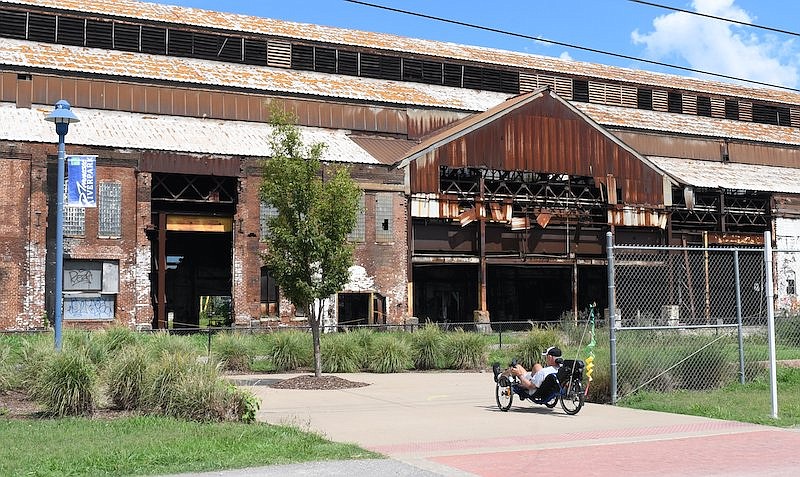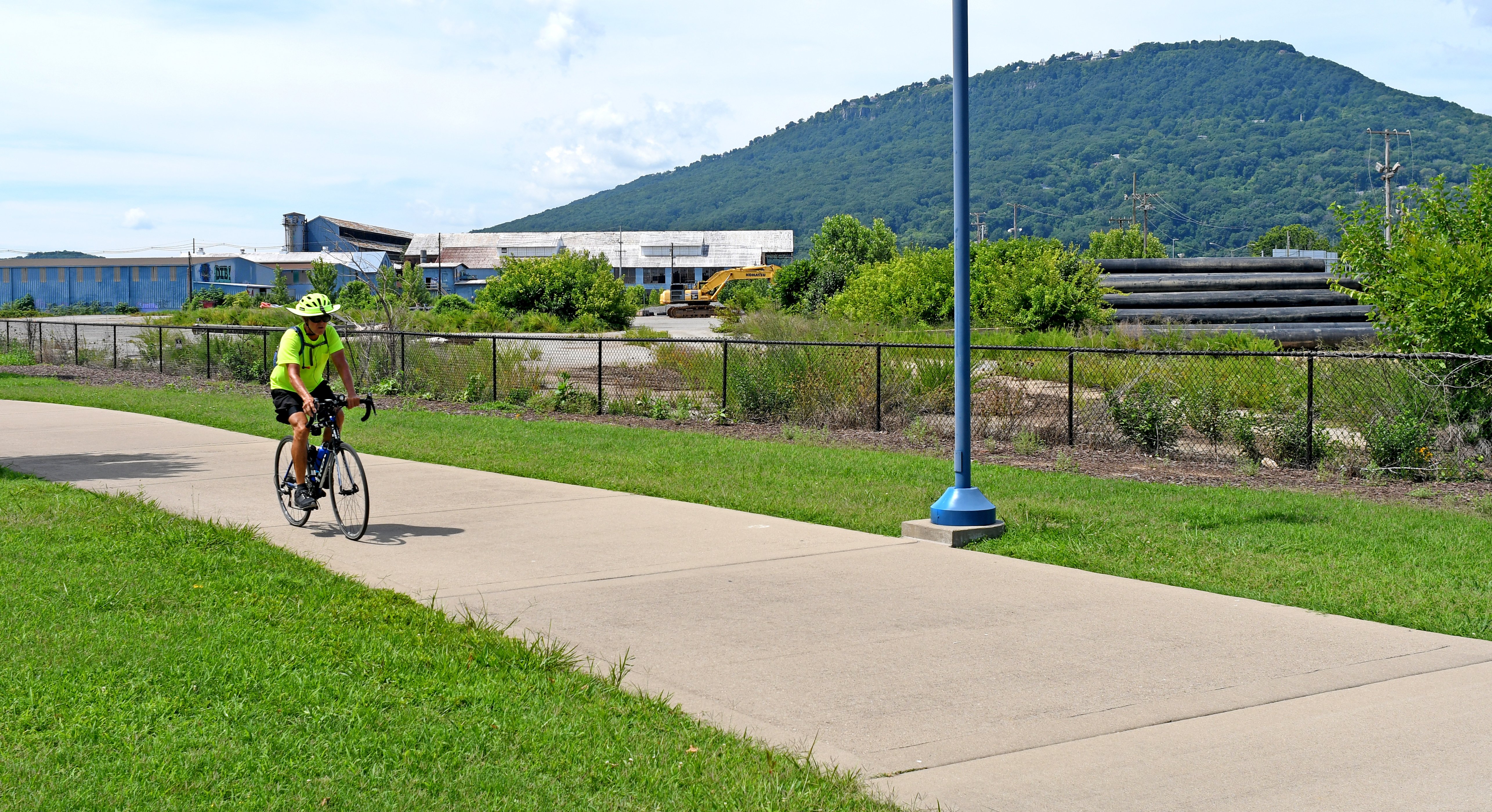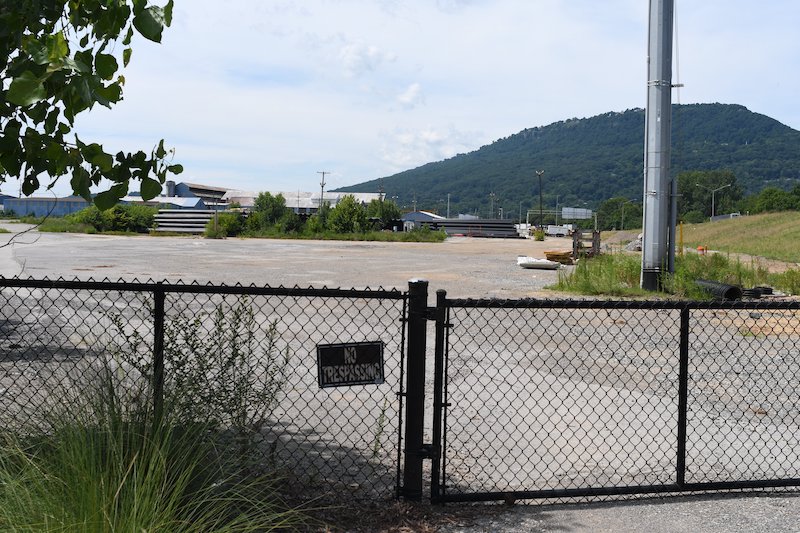A plan for a new Chattanooga Lookouts stadium on blighted foundry land won the OK of a Hamilton County panel Thursday, including creation of a 450-acre special tax district around the facility.
County Mayor Jim Coppinger said after a 5-to-1 vote by the county's Industrial Development Board that he expects a resolution on the nearly $80 million project to come before the County Commission next week with a formal vote a week later.
"It's something we've been working on for decades," he said about redeveloping the 120-acre U.S. Pipe/Wheland Foundry site between Broad Street and Interstate 24.
But development board member Steve Slater, who cast the only "no" vote, said he has talked to hundreds of people in his district, which includes Soddy-Daisy and Sale Creek.
"Not one person is for this," he said during the meeting.
The plan shown to the board includes creating a special tax district to help pay for about 58% of the project. The district includes not just the 120-acre foundry property, but the South Broad District around it. Also included now are adjacent parts of Alton Park, including a site for a proposed greenway.
Jermaine Freeman, the city's economic development officer, told the board that people in that area said they want redevelopment to spread to Alton Park.
"There has been a tremendous amount of disinvestment" in Alton Park, he said. "It didn't make sense for us to leave out blighted parcels on the other side of (Chattanooga Creek)."
He also talked about development around the stadium which officials said they expected to see, including $160 million to $170 million from Nashville-based Core Development.
While the funding plan, including the issuance of 30-year revenue bonds, is based on $350 million in new development in the district over the period, Coppinger and Chattanooga Mayor Tim Kelly have said $1 billion or more is anticipated.
"Future development in addition to the stadium is what the city really cares about," Freeman said.
Brent Goldberg, the city's chief financial officer, said revenue from the tax district, a 30-year Chattanooga Lookouts lease at $1 million annually or more, sales taxes, parking revenues and $1.4 million each from the city and county will pay for debt service on the bonds.
The tax district allows the city and county to capture a portion of additional property tax revenue generated by the new development to pay down bonds for the multiuse stadium.
"None of this money comes from existing (property) taxes," Goldberg said.
He said the city and county shares may come from economic development fees, hotel-motel tax revenue or other sources.
During the two-hour hearing at the County Courthouse, more than a half dozen people expressed concerns and hopes about the future of the area around the stadium.
James Earles of Chattanoogans in Action for Love, Equality and Benevolence said there should be a community benefits agreement with a master developer eyed for the project.
"We hope it will be a catalyst for equitable growth," he said.
Tara Phillips, also of CALEB, said there has been little time for discussion of the proposed funding district, which uses a mechanism known as tax increment financing.
"It's unfortunate the TIF appeared so rushed," she said. "I hope there's an opportunity for a clear public process and greater transparency."
Helen Burns Sharp, founder of the group Accountability for Taxpayer Money, said she would have liked to see public hearings by the Chattanooga City Council and County Commission. She said the project could be a catalyst for development, but the proposed financing could have "a major impact" on property taxes.
"Could elected officials develop a better deal?" she asked the panel, adding that the proposed TIF is "unusually complex."
Sharp also questioned how the tax district appeared to grow in size south of the creek "at the eleventh hour."
In addition, she called for more specifics relating to planned infrastructure improvements and where those would take place.
Lookouts co-owner Casey Hammontree said Chattanooga "got lucky" that a recent contraction involving some minor league baseball teams didn't include the Lookouts. Team officials have said the team's current stadium, AT&T Field, isn't compliant with Major League Baseball's new standards for minor league ballparks.
Ann Weeks, president emeritus of the South Broad Redevelopment Group, said discussions about improving the district have been ongoing for three decades.
"It's about transforming our western gateway" to the city, she told the panel. "Whether people stop or not, they'll talk about it."
Charles Wood, the Chattanooga Area Chamber of Commerce's vice president of economic and talent development, said the project would create new tax revenues for Hamilton County schools of about $40 million.
"There's a new revenue stream that goes to the schools and county," he said.
Freeman said the city also plans to work on the creation of affordable and workforce housing within the district. Creating more density in the area will help in that goal, he said.
Freeman said the city's Industrial Development Board is to take up the stadium plan Aug. 1. The City Council also needs to sign off on the project.
Coppinger said he expects the city and county will again seek state money next year, though his term ends Sept. 1 and a new county mayor will take his post. State legislators enabled the proposed project to use sales taxes collected in the stadium, but turned down a request for direct aid.
Coppinger also thanked the county development board for "listening to both sides of the issue and making a decision based on their best judgment."
"This is how the process works," he said.
Board member Tom Francescon Sr. said he's from a family of baseball fans, and he believes the stadium is "a wonderful project."
But he said there is a concern among some about not paying extra taxes to get the project done.
Annie Hall, another board member, said the project is "a perfect example" of why TIFs were created.
Contact Mike Pare at mpare@timesfreepress.com or 423-757-6318. Follow him on Twitter @MikePareTFP.


